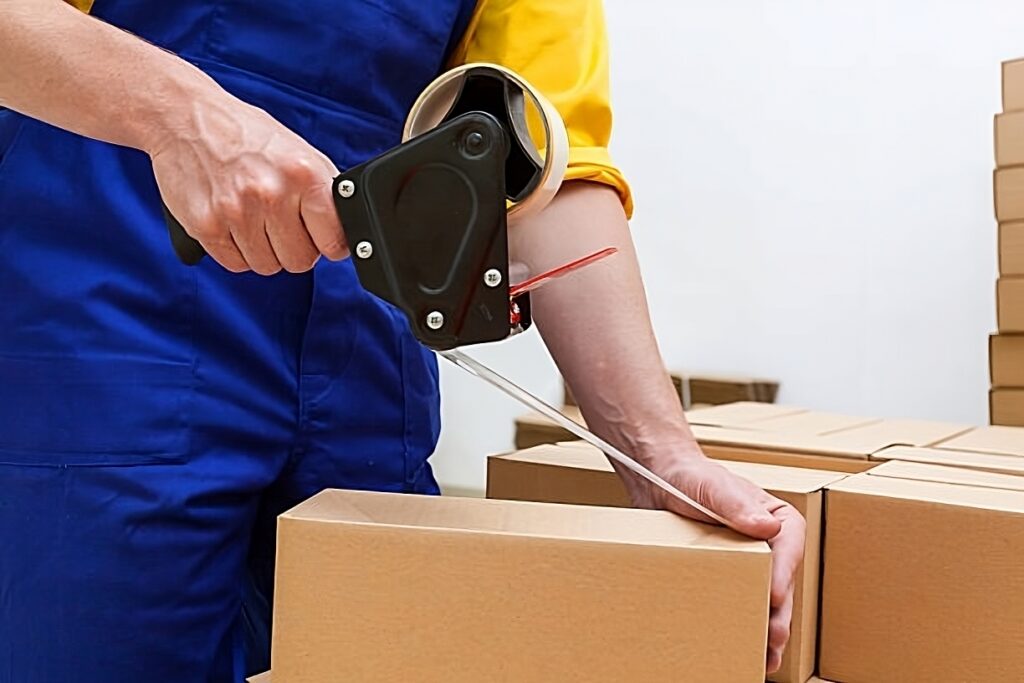Packaging plays a crucial role in the success of any business, and packaging tapes are an essential component of the packaging process. From ensuring the safety of products during transit to enhancing branding and marketing efforts, packaging tapes provide a range of benefits. In this article, we will explore the world of packaging tapes, focusing on Avish Inc., a leading company known for its high-quality and reliable packaging tapes.
Importance of Packaging Tapes for Businesses
Ensuring Product Safety
The primary purpose of packaging tapes is to secure and protect products during transportation. With the right packaging tape, businesses can safeguard their goods from damages caused by mishandling, vibrations, and environmental factors. Whether it’s delicate electronics, fragile glassware, or heavy machinery, packaging tapes provide an extra layer of protection to prevent accidents and ensure products reach their destination intact.
Securing Shipments
In addition to product safety, packaging tapes play a vital role in securing shipments. They keep boxes tightly sealed, preventing items from falling out or getting lost during transit. This ensures that packages remain intact from the moment they leave the warehouse until they reach the customer’s doorstep. Reliable packaging tapes eliminate the risk of damaged or missing items, leading to greater customer satisfaction and reduced returns.
Branding and Marketing
Packaging tapes offer businesses a unique opportunity to enhance their branding and marketing efforts. Customizable tapes with company logos, slogans, or contact information create a professional and cohesive brand image. As packages travel through various distribution channels, branded packaging tapes act as mobile billboards, increasing brand visibility and recognition. This small investment in customized packaging tapes can have a significant impact on brand recall and customer loyalty.
Types of Packaging Tapes
There are several types of packaging tapes available in the market, each designed for specific applications. Understanding the different types can help businesses choose the most suitable option for their packaging needs.
Pressure-Sensitive Tapes
Pressure-sensitive tapes, also known as PSA tapes, are widely used in packaging due to their convenience and ease of application. These tapes have a sticky adhesive surface that bonds instantly when pressure is applied. They come in various materials such as polypropylene, vinyl, and paper, offering different levels of strength and durability. Pressure-sensitive tapes are versatile and can adhere to a variety of surfaces, making them suitable for a wide range of packaging applications.
Water-Activated Tapes
Water-activated tapes, commonly known as gummed tapes or kraft tapes, are activated by water or moisture. These tapes have a reinforced paper backing with a water-activated adhesive that forms a strong bond when wet. Water-activated tapes provide excellent tamper-evidence and are highly resistant to temperature changes, making them ideal for packaging fragile or valuable items. They offer superior security and are often used for sealing cartons, boxes, and envelopes.
Filament Tapes
Filament tapes, also referred to as strapping tapes, are reinforced with fiberglass filaments for increased strength and durability. These tapes are designed to provide exceptional holding power and resistance to tearing. Filament tapes are commonly used for bundling heavy items, securing pallets, and reinforcing boxes. They are particularly useful when extra reinforcement is required for packages that may undergo rough handling or encounter significant stress during transportation.
Duct Tapes
Duct tapes are heavy-duty tapes known for their strong adhesive properties and versatility. These tapes are made of a durable cloth or plastic backing with a rubber-based adhesive. Duct tapes are highly adhesive to various surfaces and are resistant to moisture, UV light, and temperature fluctuations. They are commonly used for sealing and repairing packages, as well as for temporary repairs, bundling, and even creative DIY projects.
Advantages of Using Packaging Tapes
Packaging tapes offer numerous advantages that contribute to the efficiency and effectiveness of the packaging process. Understanding these benefits can help businesses make informed decisions when selecting packaging tapes for their specific requirements.
Durability and Strength
One of the key advantages of packaging tapes is their durability and strength. High-quality packaging tapes provide reliable adhesion and withstand external pressures, ensuring that packages remain securely sealed throughout the shipping journey. The robust nature of these tapes helps protect the contents from damage, reducing the risk of returns and customer dissatisfaction.
Versatility and Adaptability
Packaging tapes come in various sizes, materials, and adhesive strengths, making them versatile and adaptable to different packaging needs. Whether it’s lightweight boxes or heavy-duty shipments, there is a suitable packaging tape available for every application. Businesses can choose tapes that meet specific requirements such as moisture resistance, temperature resistance, or compatibility with different packaging materials.
Tamper-Resistance and Security
Tampering with packages during transit is a concern for businesses and customers alike. Packaging tapes play a crucial role in providing tamper-evidence and enhancing security. Tapes with tamper-evident features, such as void messages or security patterns, show clear signs of tampering when removal is attempted. This helps businesses detect any unauthorized access and ensures the integrity of the products during transportation.
Considerations for Choosing Packaging Tapes
When selecting packaging tapes for their packaging needs, businesses should consider several factors to ensure optimal performance and compatibility. By taking these considerations into account, they can choose the most suitable packaging tapes for their specific requirements.
Packaging Material Compatibility
Different packaging materials may require different types of tapes for secure adhesion. It’s important to consider the surface characteristics of the packaging material and select tapes that adhere well to those surfaces. For example, smooth cardboard surfaces may work well with pressure-sensitive tapes, while rougher or uneven surfaces may require more adhesive strength or water-activated tapes.
Adhesive Strength
The adhesive strength of packaging tapes is a crucial consideration when selecting the appropriate tape for packaging needs. Depending on the weight and nature of the items being packaged, businesses should choose tapes with suitable adhesive strength to ensure secure bonding. Lighter packages may require tapes with lower adhesive strength, while heavier or bulkier packages may need tapes with stronger adhesion to withstand the stress of transportation.
Environmental Factors
Environmental factors, such as temperature and humidity, can impact the performance of packaging tapes. Businesses should consider the conditions under which their packages will be stored and transported. For example, if packages will be exposed to extreme temperatures or high humidity, tapes with enhanced resistance to these conditions, such as water-activated or duct tapes, may be more suitable to maintain adhesive integrity and package security.
Application Method
The method of tape application is another aspect to consider. Businesses can choose between manual application or automated tape dispensers, depending on the volume and speed of their packaging operations. Some tapes are specifically designed for machine application, ensuring smooth and efficient tape dispensing. It’s important to select tapes that are compatible with the chosen application method to optimize the packaging process.


